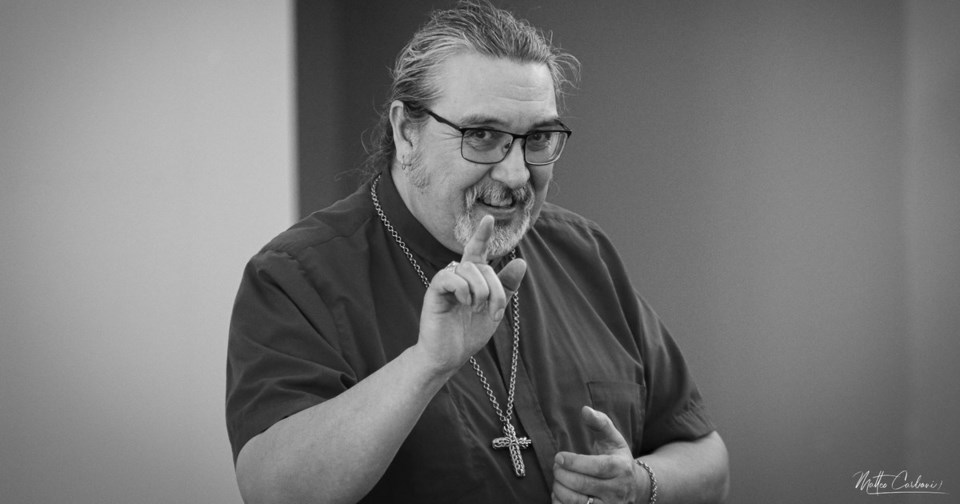HUMBOLDT — Bishop Chris Harper of the Anglican Diocese of Saskatoon visited Humboldt, delivering a presentation “Walking in Two Worlds” where he discussed the tensions with being both an Indigenous man and a part of the church.
Harper refers to himself as “cradle Anglican,” being baptised into the church as a baby. Despite that, the road to his ordination wasn’t immediate, with him first becoming an entrepreneur and a businessman before eventually going into seminary to be a priest.
Still, he never aimed to become bishop until he was nominated and elected in 2018 as a bishop of the Anglican Diocese of Saskatoon.
“I’ve always struggled because my mother was in a residential school and I was raised with the attitude and teaching, ‘You’re nothing but an Indian, and you’ll never be anything, don't try,’” Harper said.
“I am Indigenous. I am who I am and I can’t change the makeup of who I am, as well as I’m a Christian, as well as I’m a bishop at the church.”
During his presentations, he spoke about Treaties and what it means to be a Treaty person.
Harper said what “walking in two worlds” means is the understanding of who he is as both a man of the church, and an Indigenous man who is faced with the legacy of the residential school system trying to reimagine, reform and remake the Indigenous person to what Harper called a “European model.”
“This is a world that’s conflicting with the Indigenous presence, especially so as a bishop,” Harper said. “Trying to bring both those worlds, kicking and screaming into a place of healing and reconciliation but before all that happens we have to hear the truth.”
For Harper, reconciliation is the invitation of inviting others to walk the same path into the journey of healing and reconciliation, recognizing differences but honouring each other by being children of Creation and the Creator, God – together.
If there’s one message he would like people to take away from his visit, Harper said that for a world filled with conflict, people can make a difference as individuals, but it takes a community together to be strong.
“It just takes one person to stand up and say that isn’t right,” he said. “I always like to use the image of a bundle of arrows. One by itself can be easily broken, but many put together in a bundle makes it impossible to break. That’s why we need to start looking at this and doing this together.”
To that means, Harper said the key elements are listening and giving space to others experiences, learning, and employing it in the community.
“Racism is like COVID. You may not show any signs or symptoms, but assume you have it – each and every one of us. How we conduct ourselves with other people is what’s truly in our hearts. Sometimes it can be painful and revealing, but also at the same time it’s very humbling in how we go about recognizing it’s in ourselves.”
By not reconciling, Harper said the problem will continue, building up until the situation is worse.
“As Canadians we need to learn, we need to grow, we need to walk with one another,” he said.
“The best way to learn is to learn about another person, another culture, another ethnicity group – to learn about them and to acknowledge them. If you understand them then we can start to embrace each other for who we are in God’s creation. There’s a great big beautiful world, and there’s room enough for all of us.”
His visit included one lecture open to the public at St. Andrew's Anglican Church on March 23, one at St. Peter’s College on March 24, and a following that a final one at St. Augustine School.
Harper said he hopes to return in the early fall to expand on his previous talk, as well as discuss the connection between the church, Indigenous community and reconciliation, and on the interconnection between Indigenous-Christian spirituality.
“The door, the window is open,” Harper said. “In learning about each other, education is key in how we move forward as Canadians, people of Saskatchewan, as Christians, as Indigenous.”




